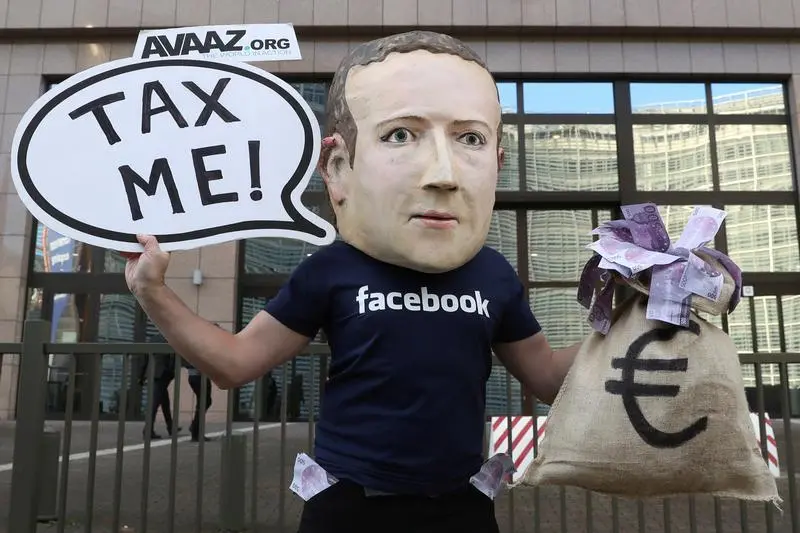PHOTO
LONDON - Pascal Saint-Amans deserves a lie-down. After months of talks, the head of tax at the Organisation for Economic Co-operation and Development seems to have brokered a peace between member countries such as France and the United States. But this may only be a temporary ceasefire in the global war over who gets to tax technology giants such as Facebook.
The OECD on Wednesday published a global tax reform proposal that is far more radical than its dry language would suggest. Saint-Amans wants multinational companies that make money from consumers, rather than just other businesses, to pay tax partly based on where they generate sales, rather than where they declare profits. That would make it harder for tech groups to shift income to low-tax countries like Ireland. France quickly backed the idea. The OECD reckons that other members, including the United States, see its plan as the basis for a negotiation, a person familiar with the discussions told Breakingviews.
The idea is that countries would first specify a “routine”, or normal, level of profitability. This could, for example, be set at 10% of revenue. The difference between that number and a company’s actual pre-tax profit margin would be deemed “residual”, or excess, profit. For Google parent Alphabet, whose 2019 pre-tax profit margin will be 26% according to Refinitiv data, the excess profit would be 16% of revenue in this scenario.
Next, countries would specify the proportion of that excess profit that should be allocated to countries based on sales. Imagine it is half. On that basis, and again using Google, 8% of its global sales would be captured by Saint-Amans’ new taxing right. That taxable income would then be divided up between countries, for example based on their overall percentage of Google’s global sales. It’s a significant conceptual departure from the current rules, which are unpopular in France and elsewhere since they allow Google and others to shift their profits to tax havens.
But thrashing out the details will be tough. There’s no clear precedent for defining “routine” versus excess profit. Governments will push for thresholds that maximise their own takings while minimising income they will lose to other countries. Without a consensus, France, Britain and others will press on with emergency levies on digital behemoths. The new global tax peace looks fragile.
CONTEXT NEWS
- The Organisation for Economic Co-operation and Development on Oct. 9 proposed giving governments outside of tax havens the power to raise more revenue from multinational companies such as Alphabet, Apple and Facebook.
- The OECD put forward a new rule that would allow countries where companies generate their sales to have some right to tax them, rather than such rights being the sole preserve of countries where companies declare profits. The proposal calls for the rule to apply to all consumer-facing businesses that meet yet-to-be specified revenue thresholds, which could vary by country.
- France's Finance Minister Bruno Le Maire said the proposals were "very good".
- "The key question now is to find a consensus and a compromise among all members of the OECD by the beginning of 2020," Le Maire said.
(Editing by Swaha Pattanaik and Karen Kwok) ((liam.proud@thomsonreuters.com; Reuters Messaging: liam.ward-proud.thomsonreuters.com@reuters.net))





















